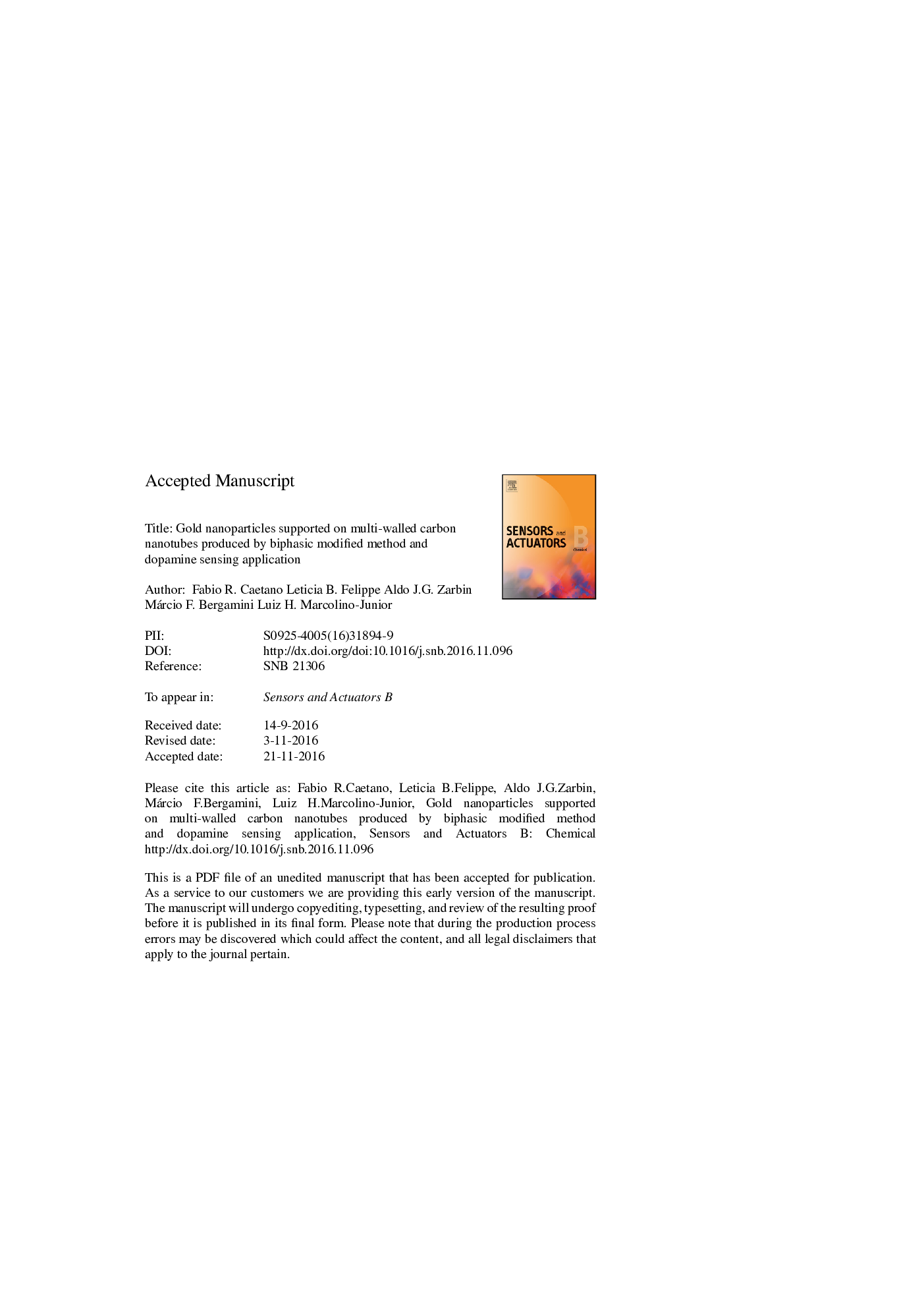| Article ID | Journal | Published Year | Pages | File Type |
|---|---|---|---|---|
| 5009449 | Sensors and Actuators B: Chemical | 2017 | 35 Pages |
Abstract
The present work describes the synthesis of a nanocomposite between carbon nanotubes and gold nanoparticles through modified Brust-Schiffin route. Observations by XRD, TEM and TGA techniques showed an uniform, well-distributed and non-agglomerated dispersion of gold nanoparticles (7 ± 4 nm of average size) completely loaded onto MWCNTs surface. After further structural characterizations, the nanocomposite was casted onto a glassy carbon electrode and characterized by cyclic voltammetry. A seven-fold density current enhancement was observed, provided by the high superficial electroactive area of the active material. Sensing properties of so-synthesized nanocomposite were tested for dopamine detection in presence of ascorbic and uric acid by square wave voltammetry. After analytical parameters optimization, the dopamine-sensor presented linear range of 4.8 Ã 10â7-5.7 Ã 10â6 mol Lâ1 with detection and quantification limits of 7.1 Ã 10â8 and 2.4 Ã 10â7 mol Lâ1 respectively and high sensitivity. The proposed method was applied in synthetic cerebrospinal fluids samples and the detection of DA in presence of potentially interferences in real samples was performed with satisfactory results.
Keywords
Related Topics
Physical Sciences and Engineering
Chemistry
Analytical Chemistry
Authors
Fabio R. Caetano, Leticia B. Felippe, Aldo J.G. Zarbin, Márcio F. Bergamini, Luiz H. Marcolino-Junior,
